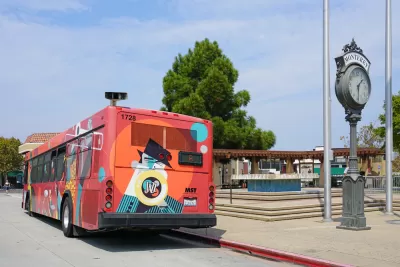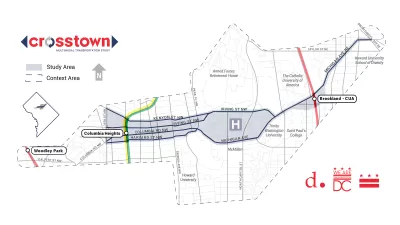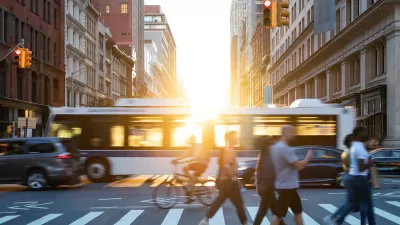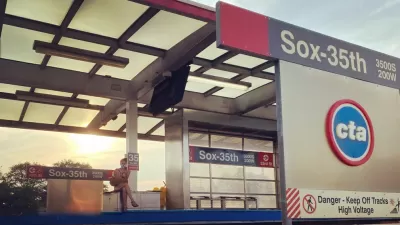A new study finds a connection between multimodality and income inequality in midsized cities.

"Looking at 148 midsize cities across the country, researchers found that income inequality declined when the percentage of commuters using some form of transportation other than single occupancy vehicles increased," reports Leah Binkowitz.
The study, by Chad Frederick and John Gilderbloom, both from the Centre for Sustainable neighborhoods at the University of Louisville, was published in October by the Local Environment journal.
The article by Binkowitz allows Frederick a chance to explain the importance of the findings, highlighted by the summary that a little bit of multi-modality goes a long way for income equality. "If you have 20 percent multimodality and go to 25 percent, you should see some very significant differences in all kinds of social outcomes," says Frederick in his own words, as quoted in the article. That reach means that transportation policy might have more impact than other policies governments could focus on to improve income equality. It also means that incremental changes can have outsized benefits.
FULL STORY: The Link Between Cars and Income Inequality

Maui's Vacation Rental Debate Turns Ugly
Verbal attacks, misinformation campaigns and fistfights plague a high-stakes debate to convert thousands of vacation rentals into long-term housing.

Planetizen Federal Action Tracker
A weekly monitor of how Trump’s orders and actions are impacting planners and planning in America.

In Urban Planning, AI Prompting Could be the New Design Thinking
Creativity has long been key to great urban design. What if we see AI as our new creative partner?

King County Supportive Housing Program Offers Hope for Unhoused Residents
The county is taking a ‘Housing First’ approach that prioritizes getting people into housing, then offering wraparound supportive services.

Researchers Use AI to Get Clearer Picture of US Housing
Analysts are using artificial intelligence to supercharge their research by allowing them to comb through data faster. Though these AI tools can be error prone, they save time and housing researchers are optimistic about the future.

Making Shared Micromobility More Inclusive
Cities and shared mobility system operators can do more to include people with disabilities in planning and operations, per a new report.
Urban Design for Planners 1: Software Tools
This six-course series explores essential urban design concepts using open source software and equips planners with the tools they need to participate fully in the urban design process.
Planning for Universal Design
Learn the tools for implementing Universal Design in planning regulations.
planning NEXT
Appalachian Highlands Housing Partners
Mpact (founded as Rail~Volution)
City of Camden Redevelopment Agency
City of Astoria
City of Portland
City of Laramie





























